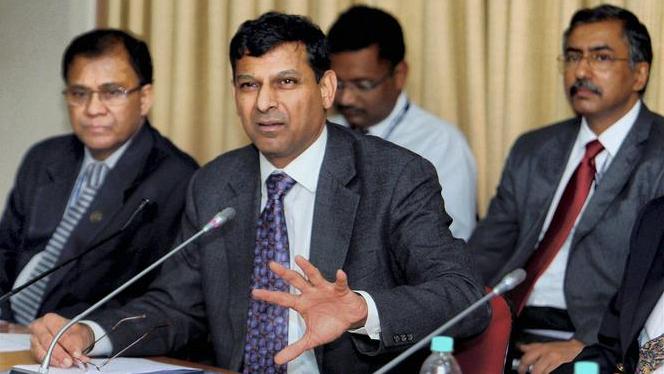The Rajan effect may be short-term, but, as India’s primary problems linger and he is restricted mainly to the dull instrument of setting interest rates.
New Reserve Bank of India Governor Raghuram Rajan surprisingly hiked interest rates in the policy review meet, giving priority to pacify doggedly rising inflation than bowing to the pressure to save the hostile economy with cheap credit.
Asia’s third-largest economy has been looking up to the appreciated former International Monetary Fund chief economist Raghuram Rajan to rescue it from sluggish growth, rising inflation and a destabilized currency. It has been less than a month that he took charge as the Governor of Reserve Bank of India but by now has been greeted as a rock star in Indian media.
But his hard-hitting move towards the monetary policy in his first review of interest rates will put the burden on Indian politicians to mend deep-rooted problems in the economy. He raised the benchmark interest rate at which banks borrow from the central bank by a quarter percentage point to 7.5 percent.
A former professor of the University of Chicago famous for having predicted the 2008 global financial crisis, Rajan’s firming voice of authority had in current weeks given a boost to investor confidence in India. But the central bank has narrowed scope in dealing with India’s economic miseries. Rajan’s biggest possible contribution may recline in whether he can use his accreditation and international standing to cajole Indian government into modifying policies that he classifies as the fundamental reason of the country’s economic doldrums.
The Governor’s statements after the policy statement recommended he is working with the government to soothe the rupee and aiding their efforts to entice increased foreign investment and taper India’s worrying current account and budget deficits. He had met the finance minister P Chidambaram and Prime Minister Manmohan Singh earlier in this week.
He also alerted that the US Federal Reserve’s unexpected decision to hold on its monetary stimulus, which had the side effect of plummeting pressure on the rupee, is only a provisional respite and should be used as a window of opportunity.
Rajan said “We must use this time to create a bullet-proof national balance sheet and growth agenda which creates confidence in citizens and investors alike.”
At the Reserve Bank, Rajan faces a strong, ongoing balancing act of trying to encourage growth while keeping inflation in check. Businesses would have liked him to cut interest rates to try to upgrade consumption and kick-start dwindling economic growth. The economy bolstered 4.4 percent in the April-June quarter, far below the average of 8 percent growth of just a few years ago.
Analysts said they are really are in a bind. There are various economic indicators that do not seem very good. And there is no single set of policies that is going to fix all the problems at once.
To reduce the stress of the interest rate hike, Rajan also declared that emergency measures taken in July to curb the money supply and control the currency were being eased, which ought to provide some incentive for the economy.
India is witnessing hordes of economic troubles- poor infrastructure and obstinate inflation that keeps interest rates high, reliance on imported fuel, a current account deficit due to low exports and high imports, and brittle confidence that has dissuaded business investment. In addition, the government’s budget is in shortfall owing to the costly fuel subsidies and the fiscal position may worsen because of the alarming huge cost of a new legislation that guarantees food to the poor.
To make situations worse, countless foreign investors are drawing out of India and other emerging markets because of expectations that the Federal Reserve would trim its easy credit policy that had sent “hot money” into uncertain developing markets in search of higher returns. The Fed sent shocking waves to many on Wednesday by keeping the easy money going for now. Stocks in India and other emerging markets bounced back but the pulling out of stimulus is only a matter of time and is prone to roil world markets again.
The “Rajan effect” may be short-term, but, as India’s primary problems linger and he is restricted mainly to the dull instrument of setting interest rates.





